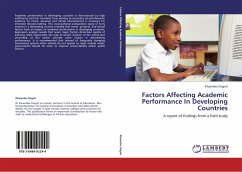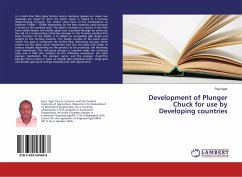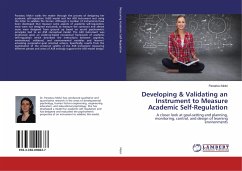
Factors Affecting Academic Performance In Developing Countries
A report of findings from a field study
Versandkostenfrei!
Versandfertig in 6-10 Tagen
52,99 €
inkl. MwSt.

PAYBACK Punkte
26 °P sammeln!
Academic performance in developing countries is characterized by high inefficiency and low transition from primary to secondary schools.Research evidence on home, personal and school characteristics is necessary for informed decision-making. This cross-sectional comparative study of forty schools in a developing country revealed that home, personal, and school factors have an impact on academic performance in developing countries. Regression analysis reveals that seven major factors determine quality of learning. Most importantly, the type of school, location of the school and ownership of the...
Academic performance in developing countries is characterized by high inefficiency and low transition from primary to secondary schools.Research evidence on home, personal and school characteristics is necessary for informed decision-making. This cross-sectional comparative study of forty schools in a developing country revealed that home, personal, and school factors have an impact on academic performance in developing countries. Regression analysis reveals that seven major factors determine quality of learning. Most importantly, the type of school, location of the school and ownership of the school override other factors in determining performance. It is recommended that instead of frequently changing educational systems when schools do not appear to meet societal needs, governments should do more to improve accountability within public schools.












